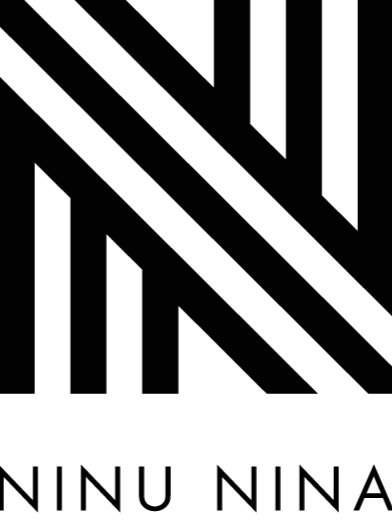NATE QI MUSIC
Nate Qi
Pronounced NAH-tuh CHEE
Born in Jakarta and based in Brooklyn, today we interview singer-songwriter-producer who’s vulnerable baritone shimmers through analog soundscapes that blend MIDI synths with acoustic instruments. Despite his extensive conservatory training as a classical pianist, he describes the songwriting process as magical and intuitive.
I see my role primarily as a fisherman of human emotions / poet / storyteller. Musically, my first record happens to sound pop because I suppose that's where I was at that moment.
His new music video premiers on June 5th
Your greatest inspirations or influences?
The idea of duality is a major theme in my work. The masculine and the feminine. Yin and yang. Shadow and light. Duality carries inherent tension. In turn, tension creates the spark which fuels the creative process.
Recently, my muse has been teaching me new ways to consider dualities. Rather than trying to reconcile two opposing forces, I'm learning to hold space for both to exist at the same time. Your humanity is your technology. Your unique individuality is how you nourish the collective.
While writing my debut album, I'd say my top three artists were Lykke Li, Bon Iver, and Kathleen Edwards.
As a child, Karen Carpenter and Frederic Chopin really influenced me.
Currently, I'm listening to a lot of ambient music like Grouper and Ministry of Interior Spaces. I also love Ichiko Aoba, who writes whimsical folk tunes in Japanese.
Tell us about the creation of this music video
I wrote ‘First Love’ while crying on a subway car. Everything went wrong that day. I was starting a new degree after giving up on music and I felt like I was failing miserably. I thought about how I left my mom in the motherland to pursue my muse. And now, my muse has left me. It felt like a cycle of regret, betrayal, and heartbreak.
In the video, Bao Ngo, the director, and I chose a disembodied mannequin hand to symbolize isolation and severed belonging. The hand represents nurture, care, and labor. We were inspired by surrealist art and Wong Kar Wai films. As a queer immigrant artist, I always feel like an outsider to my own culture and family. The final scene in the video represents a ritual we must all go through: releasing ourselves from the womb, the comfort zone so we can dance freely into the night.
We had a small superstar team on set. Matilda Sakamoto (@tiilderz on Instagram) choreographed the movements, Steve Brickman (@thestevebrickman on Instagram) operated the camera, and Christina Lan (@laenzz on Instagram) edited the video. Steve and Christina are both incredible musicians in their own rights, and I think that shines through on the final cut of the video.
Challenges of the industry?
It's really hard to establish sustainability in the music industry, both financial and emotional. In 2020, there's an endless array of streaming platforms for artists to share our work. There's a vast ocean of articles on how to run your social platform, how to market your music, etc. However, it's crucial to remember that not all strategies are good for us and our own individual vessels.
As an independent, unsigned artist, my time, energy, and resources are limited. I had to learn the hard way that it's OK to not appeal to everyone. I'm learning to trust that my unique vision will constellate the right listeners and collaborators. I see my art as a mirror. What the audience sees in my music and in me are simply their own hopes and wishes. When people support me or resonate with my work, I believe that, in some ways, I'm assisting their journey to come home to themselves.
How do you feel about the current situation and how do you think this pandemic will affect creatives moving forward?
On the one hand, I'm tired, concerned, and confused. I think we all feel that way. I also feel a deep melancholy. The pre-pandemic ways of seeing and interacting with the world are now gone. Our world is not the same, because we no longer view it through the same lens.
On the other hand, we are presented with an opportunity to revisit how we function in the world. This huge reset has gifted us the time and space to reconnect with essential parts of ourselves, to resurrect old passions and hobbies. During lockdown, my inner artist child crawled out of hiding. I found myself doodling and writing again.
This moment is a powerful invitation to deprogram ourselves from harmful mindsets around our worth and our creativity. I share my thoughts here: www.nateqimusic.com/blog/creativity-industrialized. Many of us are taught to believe that creativity is about proving our worth. We exist in a system where we have to assert our significance to survive. The message from dominant culture is to "crush the competition," or "be number one." This a very violent, unsustainable approach to creativity. I hope that we will stop seeing each other as competitors and learn to embrace each other as part of a community that transcends medium and genre,
Favorite websites, social media handles, etc
I like reading The Creative Independent (thecreativeindependent.com) and listening to the podcast On Being (onbeing.org/series/podcast)
My latest obsession is looking at mushroom photography on Instagram. @seventytwomushrooms and @fungifinderpdx are good places to start.
I highly recommend that everybody start taking voice lessons. We internalize a lot of fear around our voices - both metaphorical and physical. A good place to start is my voice teacher, Jamie Leonhart (www.jamieleonhart.com) - her method is gentle, kind, but powerfully effective.
Finally, I love the language of astrology and tarot. Britten LaRue has these beautiful workbooks (brittenlarue.com/shop-1) that works well as gentle introductions. For tarot readers, Liz Worth (www.lizworth.com) and Zaneta Sykes (zanetasykes.com) are both incredible. If you are worried about tarot cards being evil, etc., I highly recommend checking out The Lioness Oracle tarot deck (@thelionessoracle on Instagram). It's such a breathtakingly beautiful deck that feels so angelic to me.





